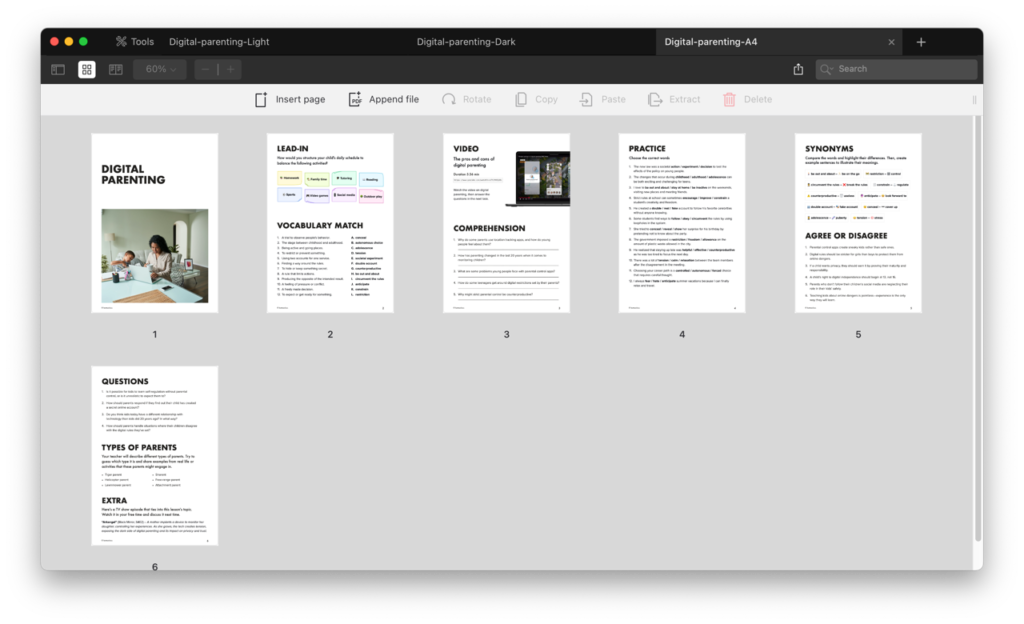Digital Parenting
This B2 lesson is about digital parenting and the tricky balance between keeping kids safe online and giving them enough freedom. Students watch a video, learn vocabulary like “circumvent the rules,” “counterproductive,” and “autonomous choice,” and debate whether parental control apps actually help or just create sneakier kids. It’s a topic that gets strong reactions from parents and non-parents alike.
Lesson overview
- Learn 12 vocabulary items related to parenting, digital monitoring, and teenage behavior
- Watch a video about the pros and cons of parental control apps and tracking tools
- Practice choosing correct vocabulary and comparing synonyms in context
- Debate agree or disagree statements and guess different parenting styles from descriptions
| Level | Vocabulary | Video Length | Lesson Time |
| B2 / Upper-Intermediate | 12 words | 5:36 min | 60 min |



Vocabulary
- societal experiment
- adolescence
- be out and about
- constrain
- double account
- circumvent the rules
- conceal
- restriction
- counterproductive
- tension
- autonomous choice
- anticipate
Contents
- Lead-in
- Vocabulary matching
- Video
- Comprehension
- Synonyms
- Agree or disagree
- Questions
- Types of parents
- Extra
Start with the lead-in on slide 2. Students plan a daily schedule for a child, balancing activities like homework, sports, social media, and video games. This is a good warm-up because it forces students to make real choices about screen time and priorities before the topic is even introduced. Give pairs a few minutes to build their schedule, then compare across the class.
The vocabulary matching on slide 3 has 12 items. The format gives definitions and students match them to the correct word. “Circumvent the rules,” “counterproductive,” and “conceal” are the most useful ones for the rest of the lesson. “Double account” is worth a quick discussion too, since most students know someone who has one. Once vocabulary is covered, play the video on slide 4. It’s about five and a half minutes and covers location tracking, parental control apps, and how teenagers respond to digital monitoring. Have students answer the comprehension questions on slides 5 and 6 in pairs after watching.
The multiple choice practice on slide 7 asks students to pick the correct word from three options in each sentence. This is a good format for B2 because the wrong answers are close enough to be tempting. The synonym comparison on slide 8 pairs words like “constrain” and “regulate” or “circumvent the rules” and “break the rules.” Students discuss the differences and write example sentences, which pushes them to think about meaning more carefully than a simple matching task.
The agree or disagree section on slides 9 and 10 is where this lesson really heats up. Statements like “parental control apps create sneaky kids” and “digital rules should be stricter for girls than boys” are designed to divide opinion. Let students argue freely but remind them to back up their positions. The parenting styles guessing game on slide 12 is a fun closer. The teacher describes types like “helicopter parent” and “lawnmower parent” and students try to guess which one it is before seeing the answers on slide 13. The Black Mirror recommendation on slide 14 makes a great homework tie-in for students who want to keep thinking about the topic.